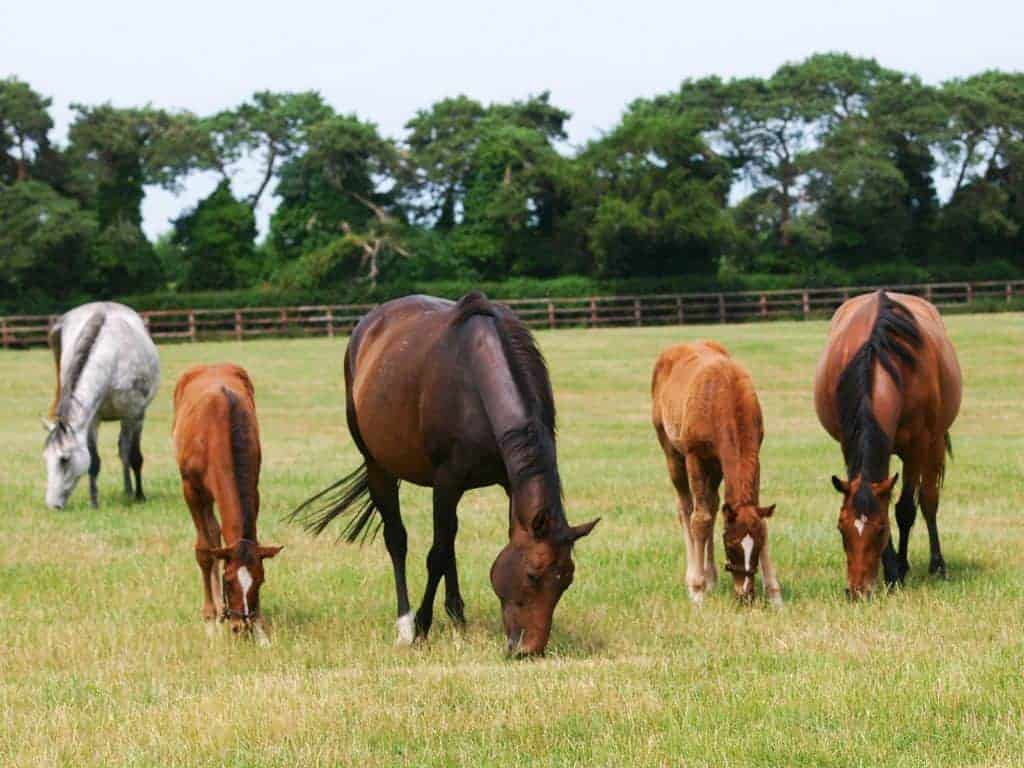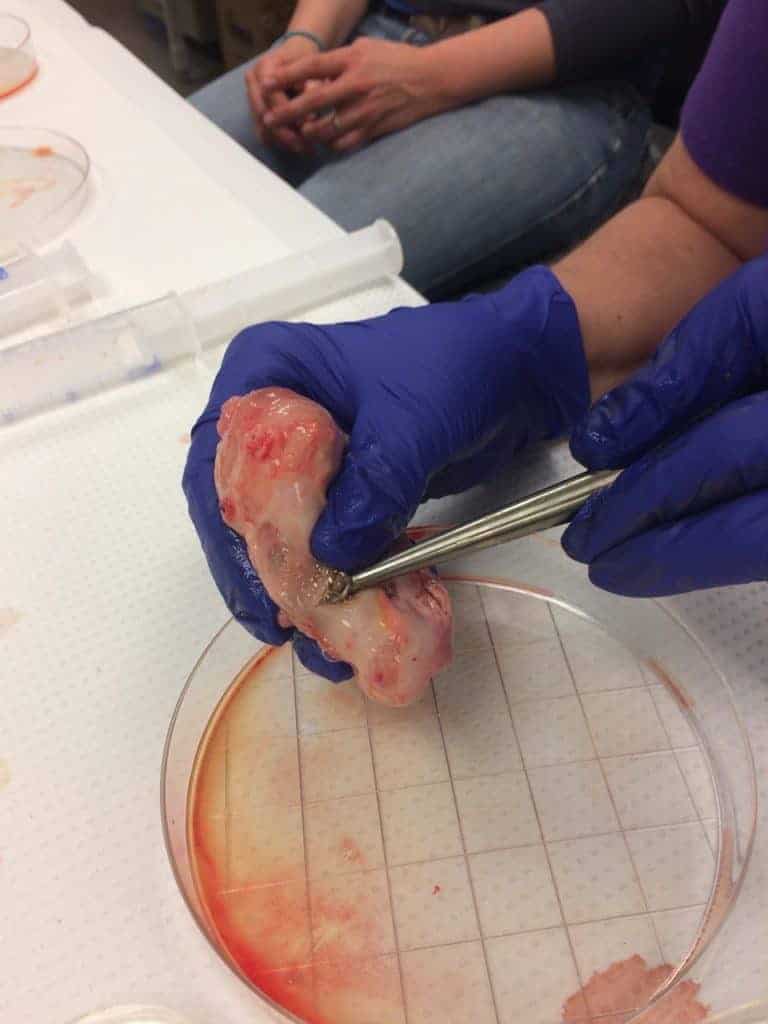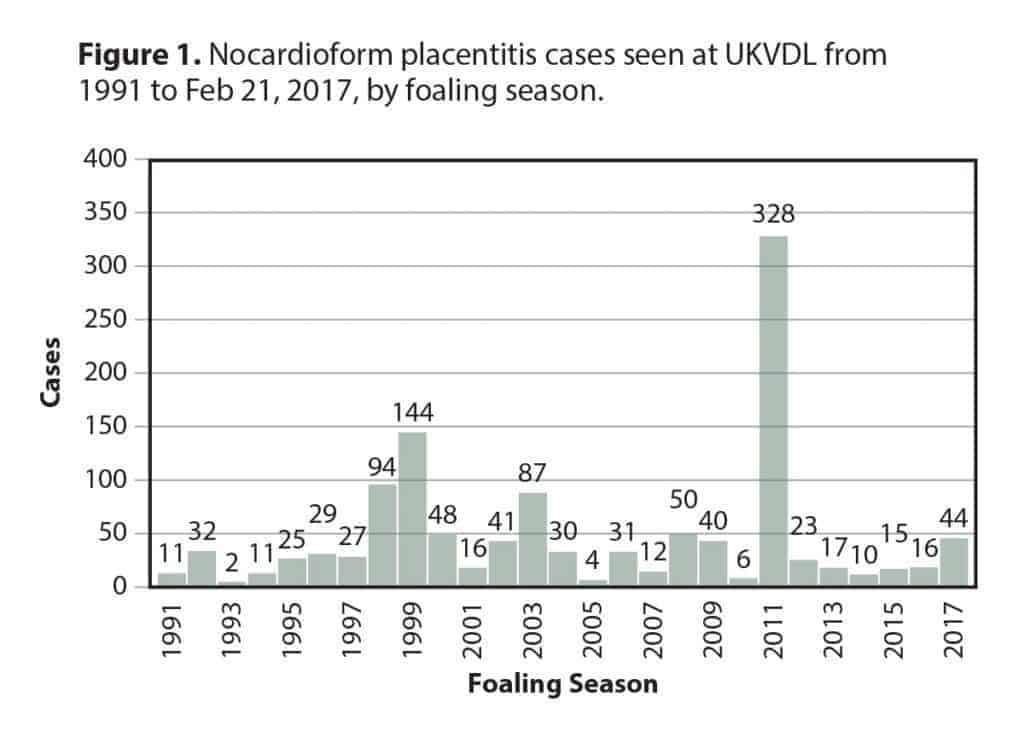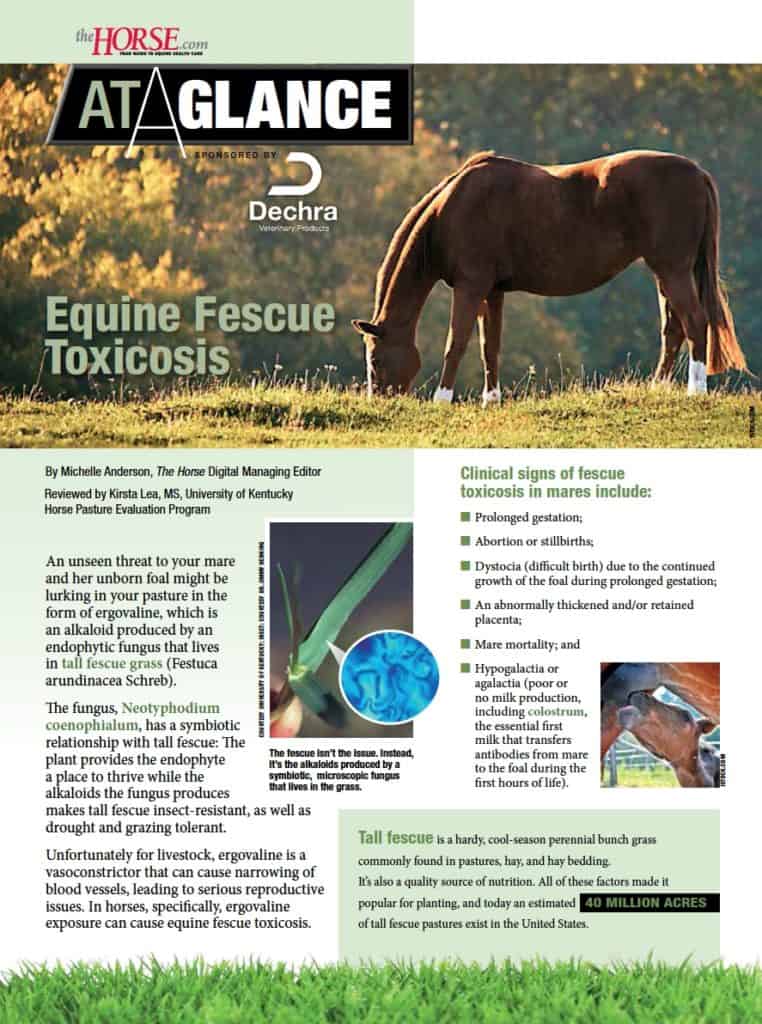
Are Foals of Obese Mares At Risk for Musculoskeletal Issues?
Overweight mares often produce heavier foals, which studies have shown are at-risk for musculoskeletal disorders.

Overweight mares often produce heavier foals, which studies have shown are at-risk for musculoskeletal disorders.

Persistent uterine lining inflammation in horses can lead to lower pregnancy rates and increased early embryonic losses.

Traditionally when a mare died, her gene pool often went with her. This isn’t always the case these days, however.

Prefoaling secretions have a pH of 8.0 to 8.5 which decreases to 6.5 or lower as foaling approaches, researchers found.

Through the third week of February, 44 cases of nocardioform placentitis were confirmed in the 2017 Kentucky foal crop.

Digestive system and cardiovascular system problems were the most common causes of death in the study population.

Reproductive endocrinology can influence a horse’s overall health and well-being.

Dr. Shavahn Loux is studying mares’ microRNA population during normal gestation and experimentally induced placentitis.

Vets can use intracytoplasmic sperm injection, oocyte transfer, and cloning to help subfertile mares produce foals.

Have a vet ensure your foal is developing well and your mare is ready for her next mating at her foal heat.

An unseen threat to your mare and her unborn foal might be lurking in your pasture. Learn more about fescue toxicosis.

With a rapidly growing foal on board, late gestation can pose nutritional challenges for pregnant mares.

Researchers recently conducted a study on the effects of starch source on mare and foal hindgut bacteria.
Read the top tweets and take-homes from Rood & Riddle Equine Hospital’s client education seminar.

Some veterinarians use this synthetic progestin in an attempt to suppress estrus and related behaviors in mares.

The science behind immunity is complex, but there are several aspects that are useful in everyday mare and foal management.
Stay on top of the most recent Horse Health news with
"*" indicates required fields